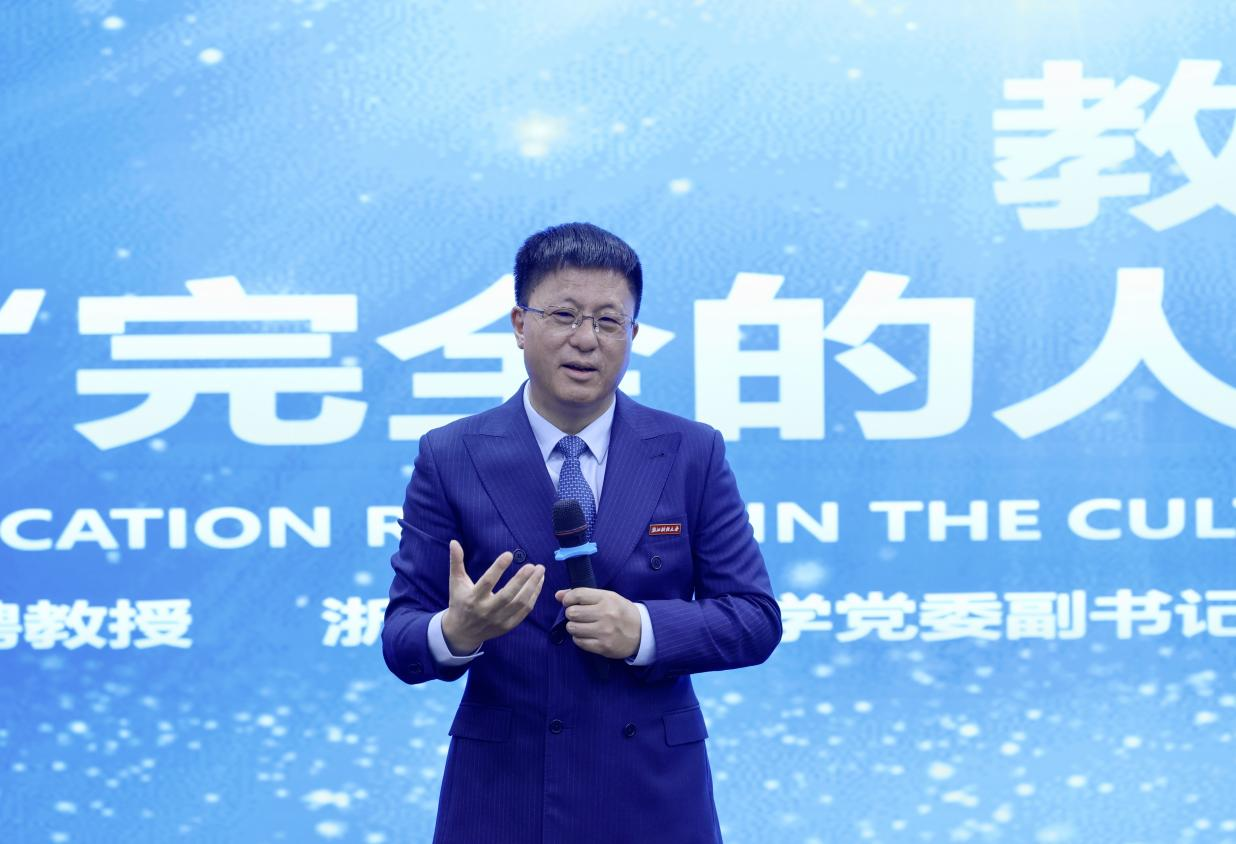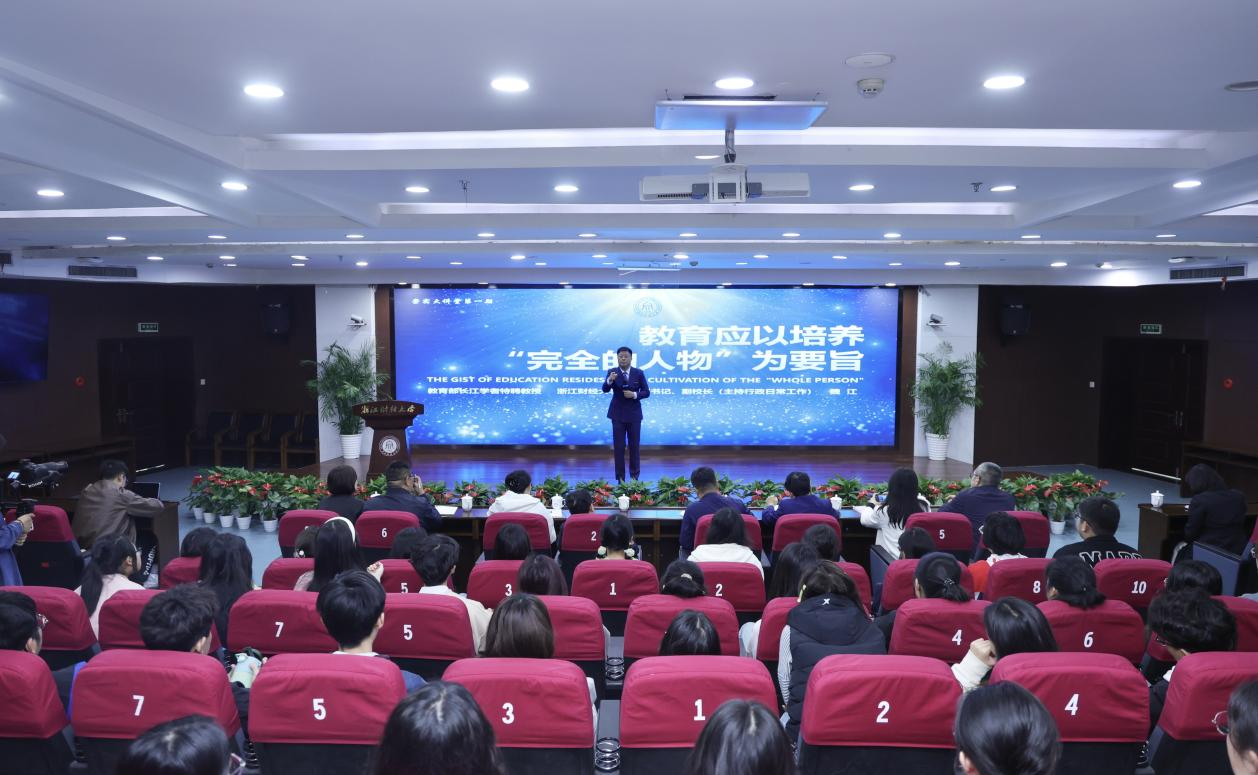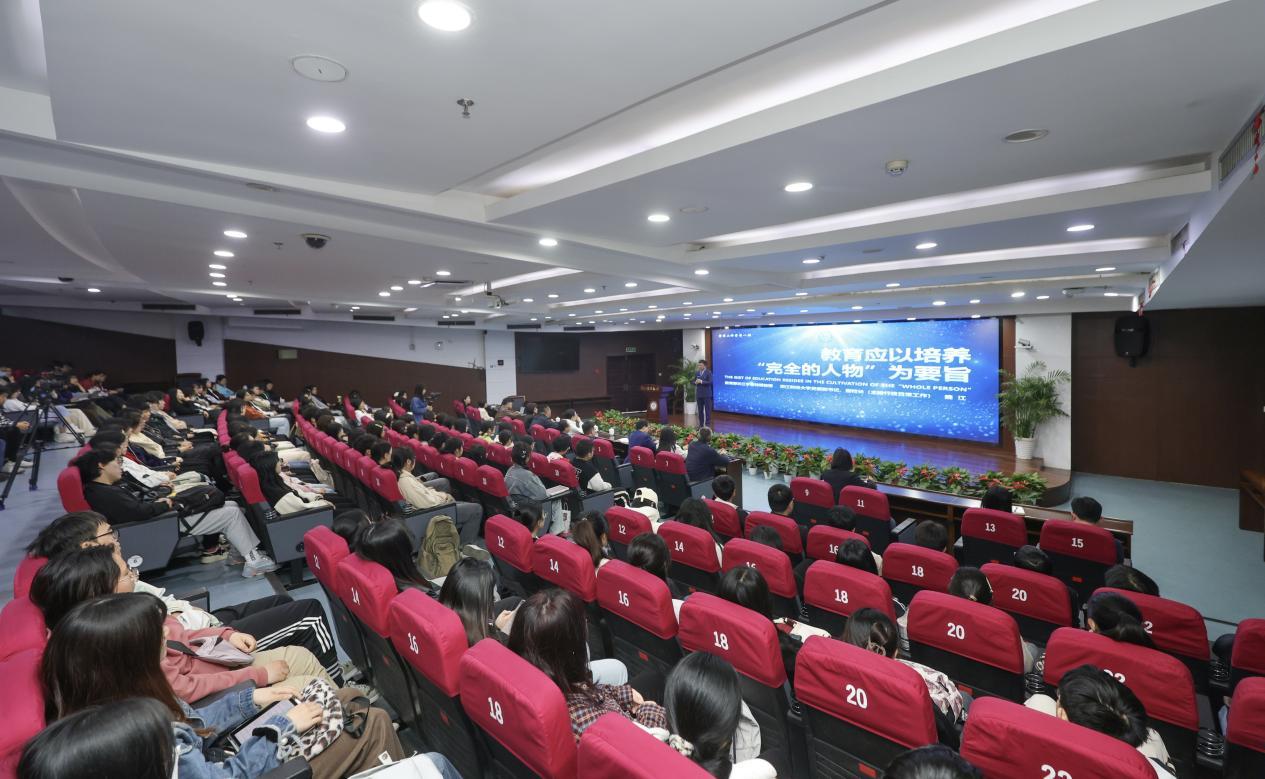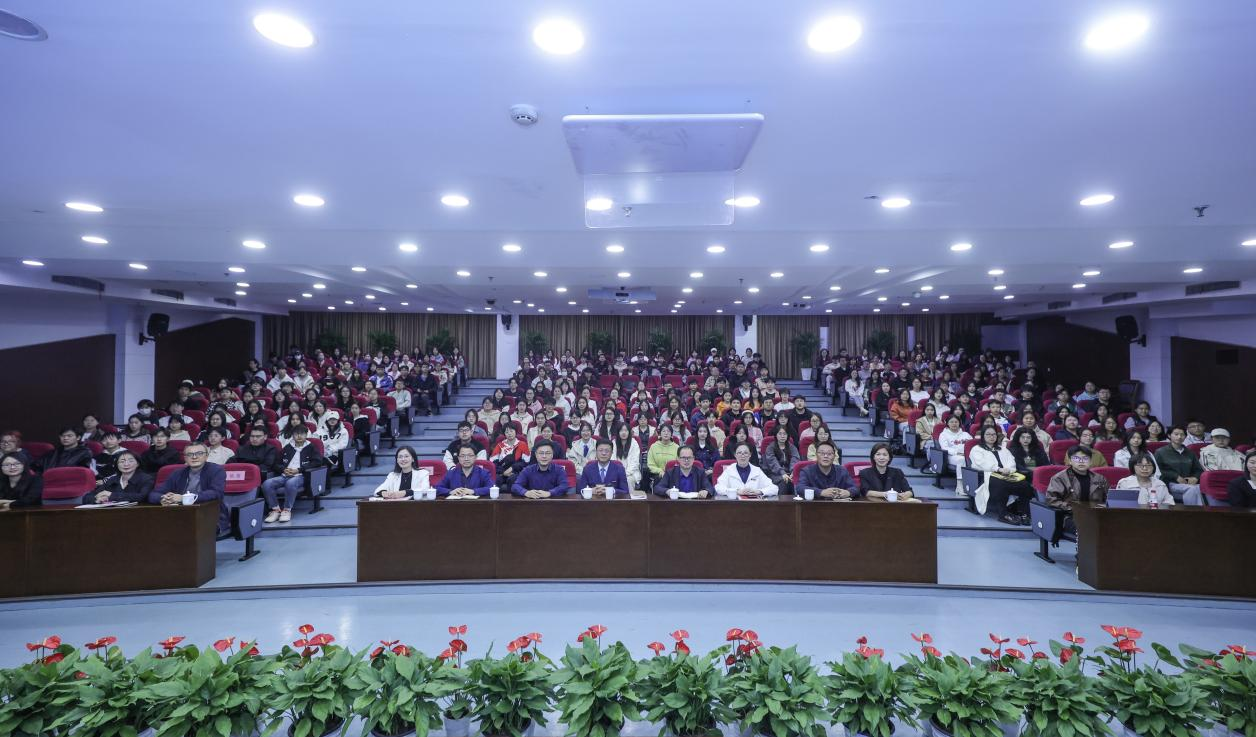On April 4, the Fourth Academic Report Hall of ZUEF was filled with faculty and students, with rounds of applause. Wei Jiang, Vice Secretary of the CPC Committee of ZUFE and Vice President of ZUFE (leading executive work), gave a lecture titled "The Essence of Education Lies in the Cultivation of the 'Whole Person'" to more than 300 faculty members and students. This lecture was also the first of the university's "Chongshi Grand Lecture Series". The event was hosted by Wang Zhengxin, Head of the Office of CPC Publicity of ZUFE. Heads of Office of CPC Affairs & Office of the President, Office of Publicity, Student Affairs Department, Office of Academic Affairs, and Wenhua Innovation College, as well as students from all schools, attended the lecture.

"Since I started working at ZUFE, I have had a clear positioning in mind: My greatest task is not to do research projects or publish papers, but to strive to build ZUFE into a high-level university, making our faculty and students respected individuals and enabling our students to discover their own happiness in the journey of university education. This is also my dream." Wei Jiang elaborated on the two major aspects of "What is a 'whole person' - the ideal image of talents at ZUFE" and "How to construct the 'New Student Talent Cultivation System'" to illustrate that universities should cultivate outstanding talents who are both grounded in the present and oriented towards the future, possessing both scientific and technological knowledge and humanistic literacy, having both Chinese sentiments and international vision, able to stand firmly on the ground and gaze at the stars, capable of lifelong learning, and adept at innovation and creation. Wei Jiang stated that the core of education lies in cultivating students into "whole persons". Under the "New Finance and Economics Strategy", ZUFE aims to cultivate MAQ-type talents (M stands for Morality, A for Ability, and Q for Quality). The university is committed to taking responsibility for the lifelong happiness of its students.

Wei Jiang emphasized that education is not only about imparting knowledge, but also about shaping qualities and spirits. "The development of one's life is a continuous process of making choices," "education is the deepest force in constructing and fostering these choices." For a university student around 20 years old, the phase where he or she can play a pivotal role is after his or her 30s. "Students should learn for the future twenty years," and "universities should cultivate talents for 10 and 20 years down the road." This should be the direction for ZUFE to strive towards in building a "New Student Talent Cultivation System". ZUFE will implement a reform of the talent cultivation model focusing on "Finance × Digital Intelligence", "Finance × Technology", and "Finance + Industry", striving to establish a new cultivation system that integrates disciplines, industry, and research with teaching.
Wei Jiang highlighted that in this era of digitization, technologization, and globalization, we should pay even greater attention to cultivating digital intelligence, humanistic spirit, and global perspectives. He hoped that our faculty members could strive to become "excellent in teaching, research, and management", achieving the best in all aspects. He also encouraged students to make good use of their time in the vast ocean of knowledge at university, constructing long-term skills with an open and inclusive learning attitude, and endeavoring to become MAQ-type talents with high sentiment, outstanding ability, and superior quality.

Wei Jiang wove his insights into a compelling narrative, drawing upon personal experiences and historical examples to answer the central question: "What kind of individuals should universities cultivate?" His address wasn't simply a lecture; it was a roadmap articulated with ease and fluency. He shared not just his educational philosophy and vision for ZUFE, but also his heartfelt hopes for its faculty and students. The entire audience—faculty and students alike—remained deeply engaged, leaving the lecture hall feeling inspired and invigorated.

The "Chongshi Grand Lecture Series" is a prominent, university-wide initiative in ideological and cultural development, led by the Office of CPC Publicity. Its primary objective is to promote ideological guidance, foster joint construction and sharing, and nurture faculty and students' cultural confidence. By achieving this goal, the series aims to strengthen students' patriotism, cultivate their humanistic qualities, enhance critical thinking skills, broaden international perspectives, and provide sustained "spiritual nourishment". This effort will ultimately contribute to the continuous enhancement of high-quality cultural offerings within our campus community.
